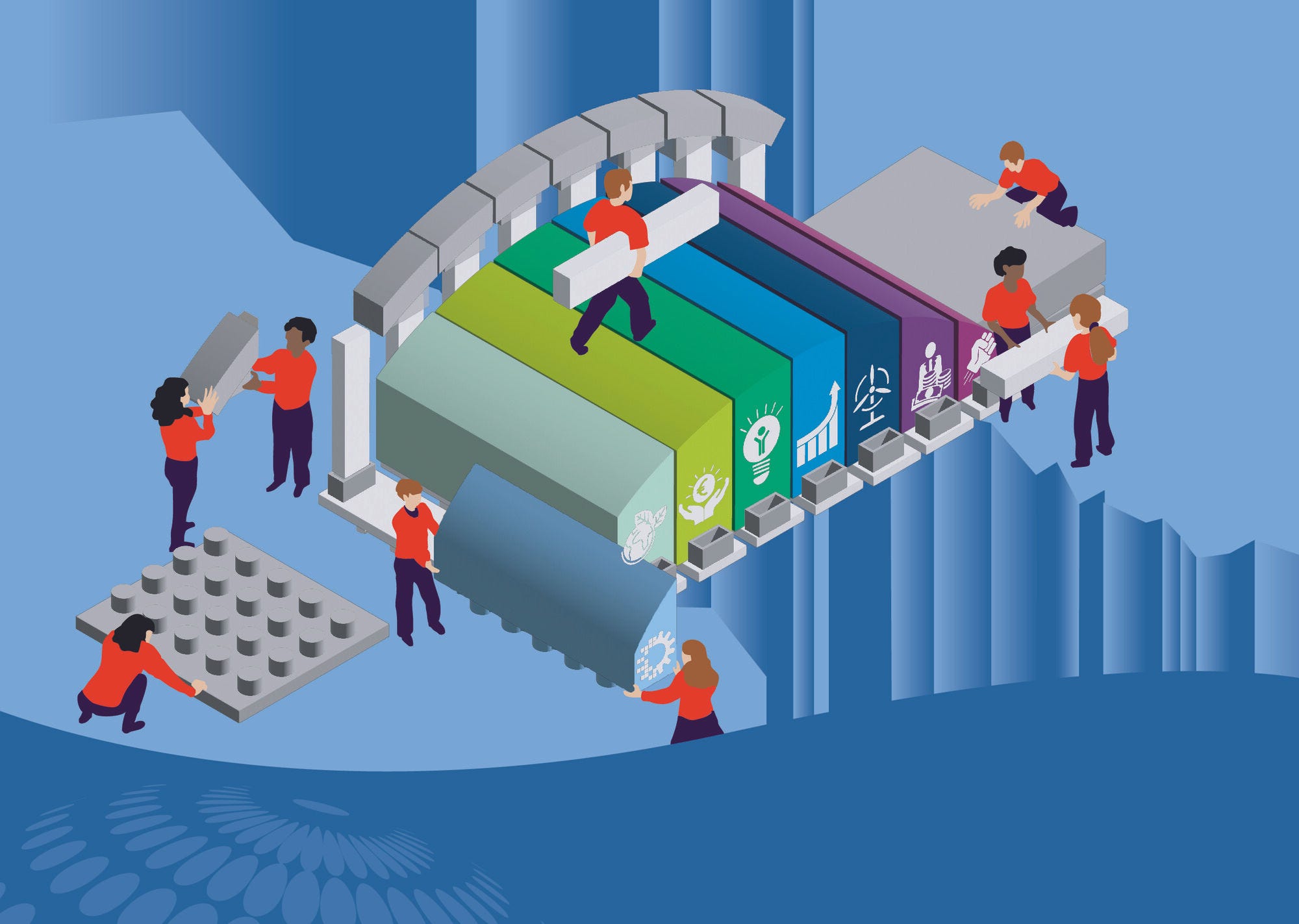This Digital Trade Review of Brazil provides an overview of Brazil’s participation in digital trade and the related regulatory environment. It provides insights into how Brazil might ensure that the new challenges raised by the digital transformation for trade can be managed and the benefits shared more inclusively. While Brazil has embraced the digital transformation and has strong potential to benefit from digital trade, it will need to continue the ongoing process of regulatory reform. This includes reducing tariff and non-tariff barriers to trade on ICT goods; reducing regulatory barriers to ICT services; increasing engagement in international discussions on digital trade; and continuing efforts to bridge digital divides.
Digital Trade Review of Brazil

Abstract
Executive Summary
The digital transformation is affecting all parts of the economy, fundamentally changing the way countries, businesses and people trade. This is largely driven by the considerable reduction in the costs of engaging in international trade enabled by digitalisation which has given consumers, and firms of all sizes, new opportunities to benefit from trade. However, in this new and evolving environment, new approaches to market openness are needed to help ensure that the benefits from the digital transformation for trade can be reaped and shared more inclusively. This is especially the case in the context of accelerating digitalisation as a result of the COVID-19 pandemic.
Brazil has embraced the digital transformation – tripling the share of its population with access to the Internet in just 15 years. With trade representing nearly a third of its GDP, Brazil has strong potential to benefit from digital trade. Against this background, this Digital Trade Review of Brazil examines the specific challenges and opportunities that the digital transformation raises for Brazilian trade, offering insights and policy recommendations on how Brazil can maximise the benefits from digitalisation for trade. The main findings are set out below.
ICT goods and services play a critical role in enabling access to digital networks yet barriers on these products remain high. For instance, ICT goods, which comprise around 9% of Brazil’s total imports, face tariffs that are 9-10 percentage points higher than world averages. At the same time, ICT services, which represented around 12% of services imports in 2020, also face significant regulatory hurdles; for instance, Brazil ranked 44th out of 48 countries in the OECD Services Trade Restrictiveness Index (STRI) for computer services in 2020.
The higher cost of ICT goods and services may help explain why, relative to world averages, Brazil lags in the use of ICT inputs in the production of its exports. This is especially the case in agriculture, forestry and fishing, which represent a significant share of Brazilian exports (around a sixth of total gross exports) and where ICT use is associated with growing export competitiveness. The same is also true for manufacturing sectors (which represent over a third of total gross exports), where the use of ICT goods and services in Brazil is well below the average in OECD countries.
The modelling analysis undertaken in this report suggests that Brazil’s potential accession to the Information Technology Agreement would promote use of ICT goods, lead to value added gains in most sectors and contribute to export diversification. However, accession will also result in tariff revenue losses which will require identification of alternative revenue streams. Additionally, firm level econometric analysis confirms that policy-makers wishing to promote export competitiveness need to act to enable greater access to imported ICT inputs.
Digitally deliverable services, which include ICT services, as well as business services such as financial or consultancy services, as well as audio-visual services, have grown to represent 65% of Brazil’s services exports in 2020 (up from 46% in 2005). In this area, Brazil outperforms many regional partners. Firm-level econometric analysis suggests that Brazil should seek to reduce barriers to digitally enabled trade in foreign markets, including through RTAs and at the WTO, to reap benefits from its increased capacity for export penetration.
The number of exporting firms using postal delivery (an indicator of trade in digitally ordered parcels) increased nearly six-fold, with an even higher increase in the value of this trade (nearly nine-fold) over the period 2014-2017. This trade in parcels is particularly important for smaller firms. In 2017, 89% of firms using postal deliveries in Brazil were small, representing 92% of the value of postal exports. By contrast, small firms represented 51% of firms engaged in trade by other means of delivery and only 28% of this trade by value.
The regulatory and policy environment that underpins digital trade in Brazil has undergone important and positive changes; however, it remains more restrictive than many OECD or G20 economies across a number of areas. Some of the key remaining regulatory challenges include reducing barriers to ICT infrastructure services, such as telecommunications and broadcasting services, and promoting greater competition in order to incentivise investment in better quality communication services. Further reforms in other supporting services sectors, such as transport and logistics, could also facilitate the physical delivery of digitally ordered products.
Brazil is increasingly active in international digital trade and e-commerce discussions, including as a participant in the ongoing discussions under the WTO Joint Statement Initiative on e-commerce. That said, Brazil has only recently begun incorporating digital trade provisions in its trade agreements. The recently concluded agreement with the European Union includes certain digital trade provisions, and agreements with Chile and Mercosur can pave the way for the more comprehensive inclusion of such provisions, already being contemplated in ongoing negotiations. It will be important that Brazil continues to pursue such provisions in the future, with a view to helping expand market access for Brazilian firms engaging in digital trade.
Key recommendations
Lowering tariff and non-tariff barriers to trade on ICT goods, including via seeking accession to the Information Technology Agreement so that firms and individuals can access the goods they need to take advantage of digital networks at lower cost.
Reducing regulatory barriers to: computer services to reduce costs of access to digital networks; telecommunications and broadcasting services to promote more competition and incentivise investment in higher quality communications services; courier and transportation services to enable more trade in parcels; and commercial banking services, by implementing recent reforms undertaken by the Central Bank of Brazil to ease the establishment and operation of foreign financial institutions.
Ensuring that the new General Data Protection Law continues to provide a balanced approach fostering regulatory certainty and trust by enabling the regulatory body to act in a manner autonomous and independent from the government.
Increasing engagement in international discussions on digital trade, including through increased use and adoption of digital trade provisions in trade agreements to ease the restrictions faced by Brazilian exporters in growing digitally deliverable exports.
Continue efforts to bridge digital divides within Brazil to ensure that benefits of digital trade to be shared more inclusively.
Related publications
-
 21 November 2024
21 November 2024 -
 Policy paper19 November 2024
Policy paper19 November 2024




